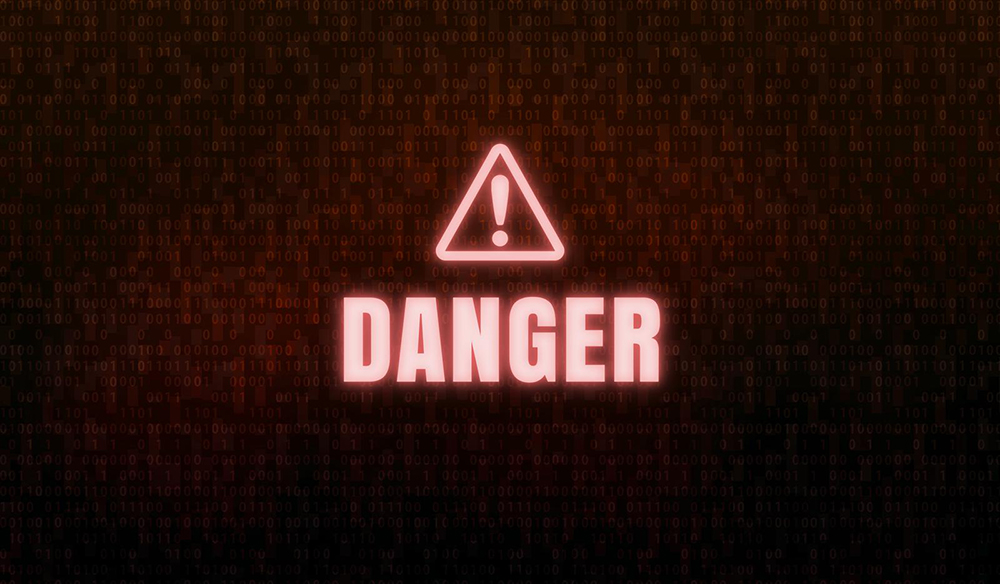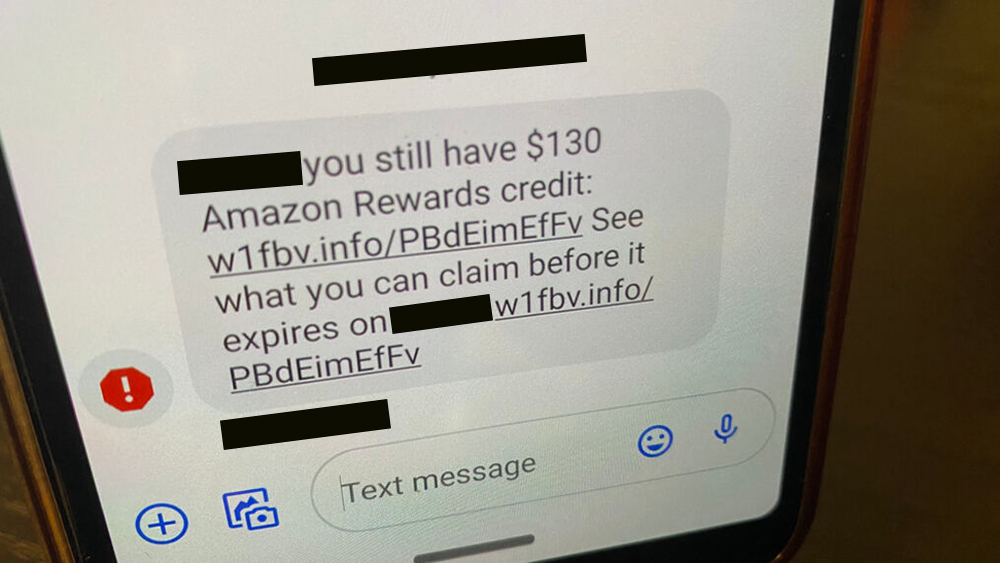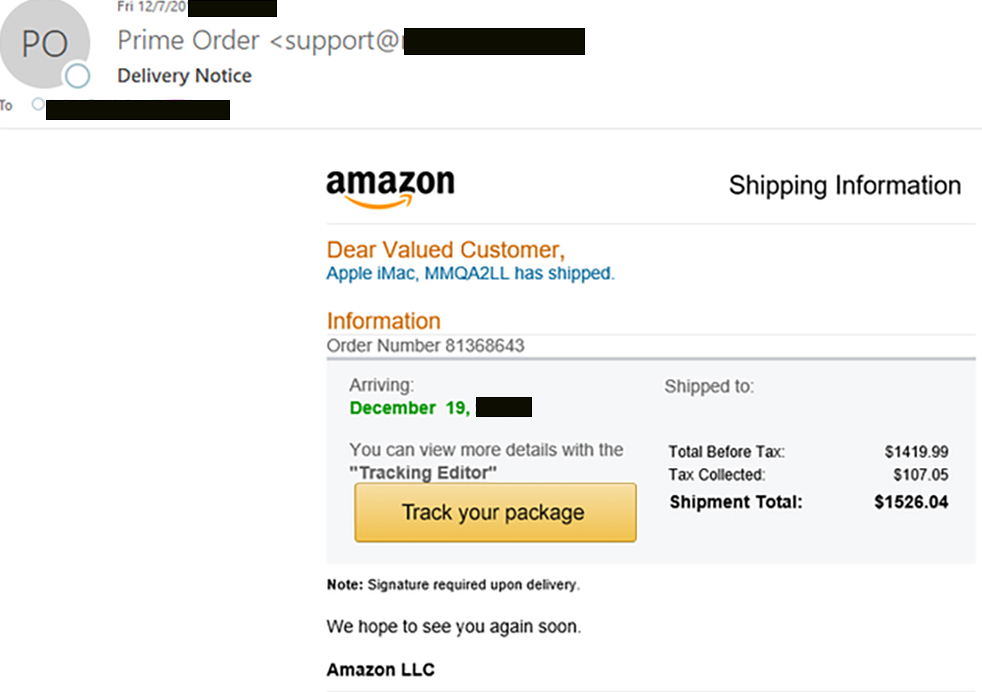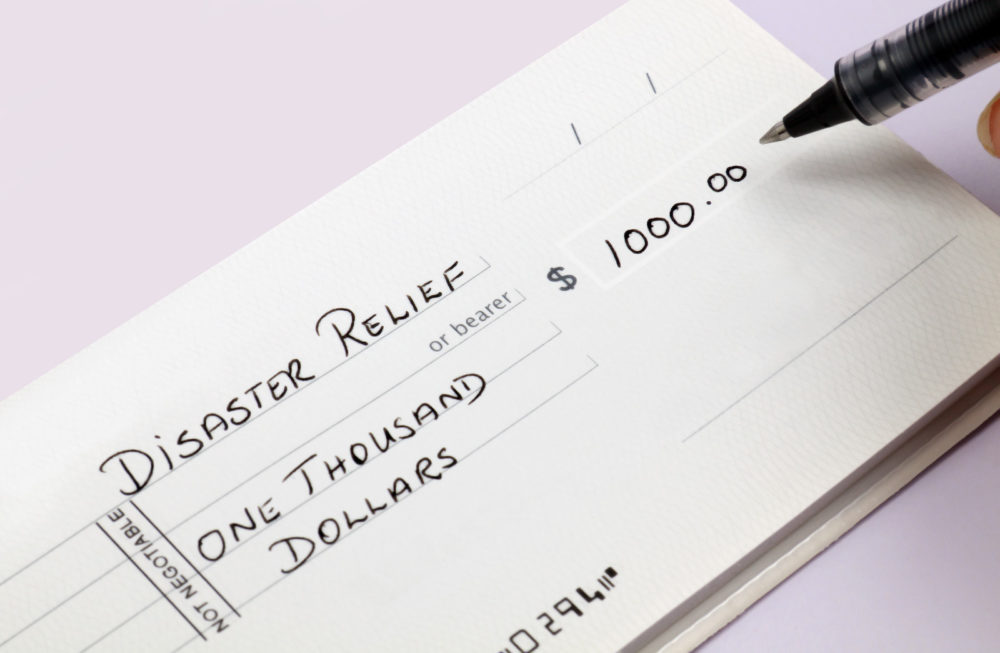The Holiday Season is upon us, and unfortunately, the opportunities for scammers are through the roof. It’s important to know what fraudulent schemes to watch out for to avoid falling victim to a scammer. Let’s look at some warnings before we dig deeper into nine popular holiday scams to look out for this Holiday season.
Table of Contents
Warning Signs
Before we get into the biggest holiday scams, let’s take a look at how to spot holiday scams and some common warning signs. Please note that these tips can help you spot a potential scammer in your life or on social media.
1. You see a social media ad offering a massive discount on a hard-to-find item that looks too good to be true. You click on it, thinking it’s an affiliate link to Amazon or another reputable company. But when you arrive at the website, you find out it’s not affiliated with any brand and is a phishing website.
2. This also works where you go to the site, place an order, and receive a counterfeit item. Often, these items will have a serial number that doesn’t match the product description. If you try to return it, they may tell you there is no return policy. They then ask you to pay more money to ship it back. Please don’t fall for it!
3. Spelling errors and poor grammar on a shopping or travel website or email may indicate that the company is new and inexperienced. A shopping or travel website without a phone number or physical location may be a scammer trying to steal your money.
4. Unsolicited emails ask you to click on links or download apps to access deals or arrange deliveries. Please don’t do it! Instead, open your browser and go directly to the website via the address bar. Also, avoid clicking on links within emails or social media posts unless you know exactly what you’re doing. You might end up downloading malware onto your computer.
5. Paying by credit card helps protect your money and identity because disputes and chargebacks are more accessible than ever before. You can also do some research about new businesses online. Look up their names with search terms like scam, complaints, review, etc., and check out reviews and evaluations on the BBB, Google Business, Yelp, and other Consumer Affairs sites.
6. Look for return and refund policies before buying goods online. Buy gift cards from businesses directly, not from stores. Don’t use cash at checkout if you’re unsure about the website’s legitimacy.
7. Don’t assume a site is safe because it shows “HTTPS” before its address. Scam sites often use this security measure, knowing that savvy users search for it.
8. Some online businesses ask you to pay using a credit card, debit card, or PayPal account. But there’s a problem — some of them charge extra fees for doing so. So before you give out your personal information, be sure to check what kind of transaction fee you’ll incur.
Let’s take a look at the most popular holiday scams of 2021.
The Amazon Fake Delivery Notification
Amazon leads the list of online purchase scams this holiday shopping season because they are the largest retailer in the world. They have been targeted many times over the last few years, but they continue to lead the way.
Criminals are using fake deliveries and fake shipping notifications as part of a larger scam targeting consumers during the holidays. This is one of the most common scams targeting people who order from Amazon, especially if they’re busy. How many times have you not even thought twice about clicking an Amazon SMS letting you know where the driver was located? Probably a lot.
This scam works by sending you a notification to track the driver, but you need to log in after you click the link in the text. Once you do that, the scammer has your login credentials and full access to your Amazon account. Consumers should be cautious about clicking links in emails or texts that appear to come from legitimate companies such as Amazon, USPS, FedEx, UPS, or any company that sends them messages.
Amazon Confirmation Email Scam
Fake confirmation email scams were a big problem during 2020, but they’ve returned. Don’t trust any email claiming you’re about to receive your order or asking for additional information to complete a transaction. Ignore them.
Amazon Package Delivery Scams
If you ever receive an unexpected delivery from Amazon, it’s probably not what you ordered. The company has reported receiving millions of packages that weren’t intended for customers. It’s recommended that you always check the tracking number before accepting deliveries.
Gift Card Scams
Gift cards are popular this year due to supply chain issues. Criminals are taking advantage of this by creating their gift cards and then selling them on websites like eBay. These are known as counterfeit gift cards. If you find someone offering gift cards for sale, don’t buy them.
Furthermore, scam artists often use gift cards as a means to defraud consumers out of money. People should never give out personal information without verifying the identity of someone asking for it. Consumers also need to be careful when using online shopping services because they collect data on customers’ purchases.
The FTC says there’s one fundamental rule to keep you safe online: Whenever someone asks you to pay them with a gift card, they’re probably trying to rip you off.
‘Free’ gift cards
Holiday shoppers need to be on the lookout for gift cards that may seem too good to be true. There are plenty of ways criminals can get your personal information and use it against you. For example, scammers might send you a message saying that you won a gift card and all you have to do is provide your name, address, and even your social security number. Then when you get the “free” gift card emailed to you, they’ll have you input the activation code and your credit card info. The scammers will have all the information they need to charge as much as they want to your credit card.
Be careful about sharing your credit card number online. You never know if what seems like a great deal could be a scammer trying to get your personal information.
Social Media Gift Exchanges
The Secret Sister Social media gift exchange going around is nothing more than a pyramid scheme. The scammers ask you for your personal information and that you send a gift or make an Etransfer to an anonymous person in hopes that you will receive a gift from someone else, but that never happens. You are left high and dry with no gift and a compromised identity. It’s important to note that these schemes aren’t limited to just Facebook.
Fake Charity Emails
Another popular holiday scam that people fall for is the old fake charity scam. You receive an email asking you to donate to a cause. This may seem like a good idea at first, but once you click on the link provided, you will end up donating to a fraudulent site instead of an actual charity. The scammer has also phished you and now has all of your information. Talk about a lose-lose situation!
Look-Alike Websites And Phishing Emails
Since we touched on phishing in the above section, let’s look at these holiday shopping scams. Many scammers build fake websites to trick users into giving away their personal information. These sites mimic the appearance of well-known brands, including banks, retailers, and government agencies. If you decide to visit these sites, make sure you only provide sensitive information through official channels.
Phishing Emails
This is another common holiday scam that targets consumers. Phishers send emails pretending to be from a legitimate business asking you to update your account details. These emails usually contain some malicious attachment that attempts to infect your computer. If you open these attachments, you risk losing sensitive information, including bank login credentials.
Wrapping Up
That’s our list of the most popular holiday scams of 2021! If you or someone you know experienced any other type of holiday scam? We’d love to hear about it!
We hope you’ve learned something new and hopefully avoided becoming a victim of one of these scams. Stay Safe and have a Happy Holiday Season!











Trackbacks/Pingbacks